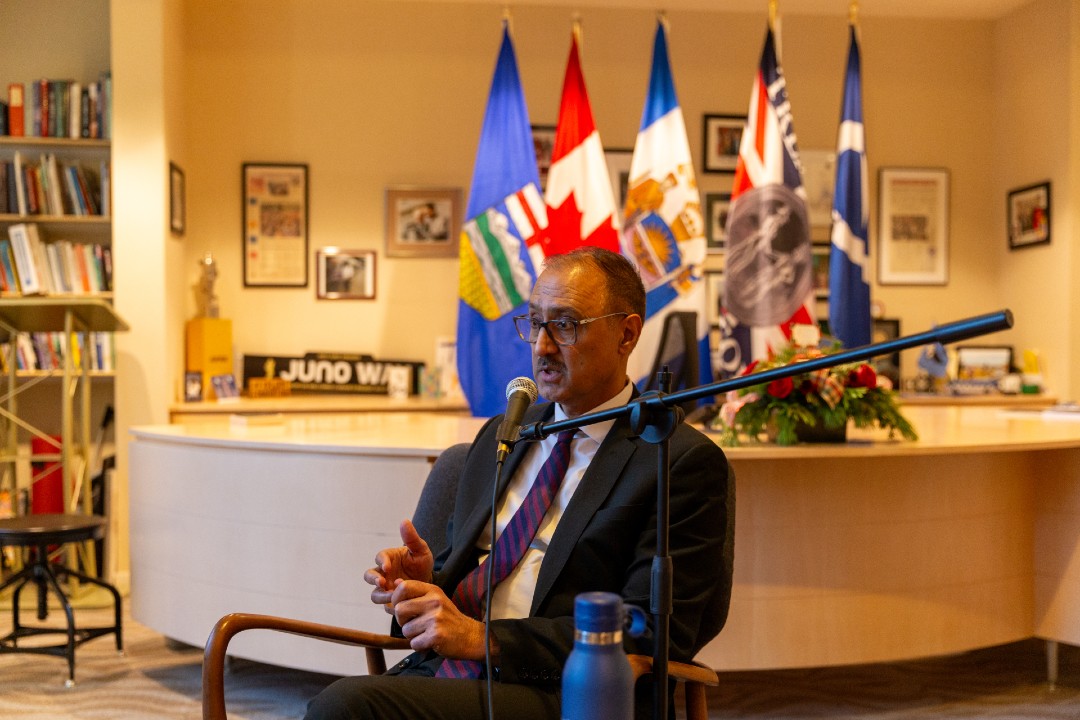In a year-end interview with Taproot, Mayor Amarjeet Sohi said council's declaration of a housing and houselessness emergency in January led to real change, despite provincial criticism at the time that it was performative.
Council voted 9-4 to declare the emergency, after Sohi introduced the declaration as a motion. Sohi told Taproot that during budget deliberations this fall, as he and council worked behind the scenes to create amendments to the budget adjustment and lower the proposed tax increase, the possibility to cut funding for affordable housing came up.
"We already met our housing targets that we set as part of the capital budget. But there was no one moving (funding reductions) because people recognize that we have declared a housing emergency," Sohi said.
In January, when council made the decision, Municipal Affairs Minister Ric McIver called the move a "performative declaration." But Sohi compared the housing emergency to when council declared a climate emergency, in 2019, and said it took time for that declaration to be enshrined into the city's processes and policies. "The result wasn't immediate, but now, three or four years later, we are seeing changes happening in our organization and in our decision-making … in a way that without that declaration may not have happened," he said.
The city's updated affordable housing strategy set a goal to create or renovate 2,700 subsidized units by 2026. Sohi said the city is on track to surpass that by the end of 2024.
Meanwhile, the number of Edmontonians who are homeless has increased by nearly 2,000, to 4,697 in the last year, according to Homeward Trust's point-in-time count conducted in September.
Downtown investment
Sohi offered thoughts on the Downtown Investment Plan, co-authored by organizations including BILD Edmonton Metro, the Downtown Revitalization Coalition, and the Edmonton Downtown Business Association. The plan calls for governments to invest $427 million in Edmonton's downtown to improve the public realm, and for the city to offer financial incentives for office-to-residential conversions. But Sohi said it would take too long for these incentives to be paid back through property taxes for them to be viable.
"I don't think it is fair to ask working families and hardworking small businesses to deeply subsidize office conversions, which are very, very expensive to do, where the return on investment will take almost 85 years to recover," he said.
Sohi added that the city has invested close to $2 billion in downtown since 2015.

Edmonton Mayor Amarjeet Sohi reflects on 2024 during a year-end interview with Taproot. (Mack Male/Flickr)
Support for EMRB
The mayor said he and council are committed to the Edmonton Metropolitan Region Board in the wake of the United Conservative Party government's decision to cut the board's funding and make membership voluntary.
"We're going to do whatever we can in our capacity to save the good work and carry on the good work," Sohi said.
The EMRB is a provincially mandated board that is responsible for managing responsible growth in the region. The board sets density targets for all municipalities and approves planning documents like Edmonton's district policy.
"The growth plan dictates how the region grows. Otherwise, it's going to be a free-for-all," Sohi said. "You'll see country residential developments popping up in counties without proper services, or you'll see agricultural land not being protected. So the ramifications are pretty bad if the EMRB is unable to carry on their work."
The EMRB also created a 25-year regional transportation master plan and a regional agriculture plan, which Sohi said is ambitious.
National urban park
Sohi said he is disappointed by progress on the national urban park initiative. "There has been a lot of politics around it."
The Alberta government passed Bill 204 and Bill 18, amendments that grant the province more power over decisions relating to national urban parks.
The bills have complicated an already murky engagement process, the city's website suggests. "Partners have identified a need for greater clarity and understanding of how they should work together during the (national urban park) planning phase and how the Government of Alberta's Bill 204 and Bill 18 will impact the project," the city's website reads.
Parks Canada is engaging with stakeholders, including Indigenous groups, to determine how the park will be governed.
"Developing strong partnerships is critical to the long-term success of the project. This has been our focus over the past several months, resulting in a necessary delay in planning phase activities and engagement," the same city website reads.
